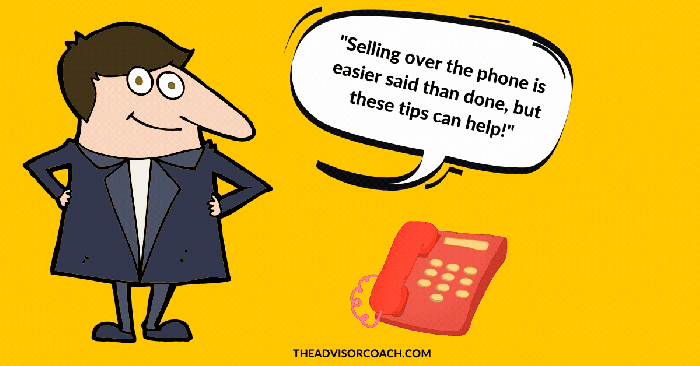In the realm of insurance sales, the ability to effectively engage customers over the phone is a valuable skill that can lead to success. Whether you’re a seasoned insurance professional or just starting out, mastering the art of phone sales requires a combination of preparation, empathy, and strategic communication.
In this comprehensive guide, we’ll delve into the intricacies of selling insurance over the phone, providing you with practical tips and insights to help you connect with customers, understand their needs, and ultimately close deals. Get ready to embark on a journey of learning and improvement as we explore the secrets of successful phone sales in the insurance industry.
Preparation

To succeed in selling insurance over the phone, thorough preparation is crucial. Begin by gaining a comprehensive understanding of the insurance products you’re offering. Familiarize yourself with their coverage details, benefits, and exclusions. This knowledge empowers you to address customer inquiries confidently and effectively.
Next, craft a compelling sales pitch that highlights the advantages of your insurance products. Clearly articulate how they fulfill specific customer needs and provide solutions to their concerns. Ensure your sales pitch is concise and easy to understand, capturing the attention of potential customers.
Practice
Regularly practice delivering your sales pitch to enhance your fluency and confidence. Rehearse in front of a mirror, record yourself, or role-play with a colleague. This practice allows you to refine your pitch, eliminate any hesitations, and perfect your communication skills.
Building Rapport

Establishing a positive rapport with customers is crucial in the insurance sales process. This rapport builds trust, increases customer engagement, and makes it more likely for customers to purchase insurance from you.
Building rapport involves actively listening to customers, understanding their needs and concerns, and showing empathy and understanding. It also involves being friendly, courteous, and professional.
Introducing Yourself
- Introduce yourself by stating your name, position, and company affiliation.
- Use a warm and friendly tone of voice.
- Maintain a professional demeanor throughout the conversation.
Listening Actively
- Pay close attention to what the customer is saying, both verbally and nonverbally.
- Avoid interrupting the customer while they are speaking.
- Ask open-ended questions to encourage the customer to share their thoughts and feelings.
Showing Empathy and Understanding
- Acknowledge the customer’s concerns and validate their feelings.
- Use phrases like “I understand” or “I can see why you’re feeling that way” to show that you are listening and that you care.
- Avoid making judgments or offering unsolicited advice.
Identifying Customer Needs
![]()
Understanding the specific insurance needs of a customer is crucial for tailoring a suitable insurance plan. This requires active listening, open-ended questions, and probing deeper to uncover pain points and concerns.
Ask Open-ended Questions
Open-ended questions encourage customers to provide detailed responses, revealing their unique requirements and concerns. Avoid closed-ended questions that can be answered with a simple “yes” or “no.”
Listen Actively and Probe Deeper
Demonstrate active listening by paying attention to both verbal and non-verbal cues. Show empathy and understanding by nodding, maintaining eye contact, and asking follow-up questions to clarify their needs.
Identify Pain Points and Concerns
Identify any specific pain points or concerns that the customer has regarding their current insurance coverage or financial situation. These pain points can be related to inadequate coverage, high premiums, or a lack of understanding about insurance products.
Presenting the Insurance Product
Effective presentation of the insurance product is key to capturing the customer’s attention and interest. This involves skillfully matching the product’s features and benefits to the customer’s specific needs and concerns, demonstrating how the product can alleviate their pain points and provide solutions.
Match Product Features and Benefits to Customer Needs
Thoroughly understand the customer’s needs, concerns, and financial situation. This enables you to tailor your presentation, highlighting features and benefits that directly address their unique requirements. For instance, if a customer expresses concern about covering medical expenses, emphasize the product’s comprehensive medical coverage, including hospitalization, doctor visits, and prescription drugs.
Explain How the Product Solves Customer Concerns
Clearly articulate how the insurance product can resolve the customer’s pain points and concerns. Provide concrete examples and scenarios that resonate with their situation. For example, if a customer is worried about their family’s financial security in case of their untimely demise, explain how the product’s life insurance component can provide a financial safety net for their loved ones.
Provide Clear and Concise Information
Deliver accurate and easy-to-understand information about the insurance product’s coverage, benefits, terms, and conditions. Avoid using technical jargon or complicated language that may confuse the customer. Present the information in a structured and organized manner, making it easy for the customer to grasp the key points.
Handling Objections

In the process of selling insurance over the phone, handling objections from potential customers is an integral part. It requires a combination of preparation, active listening, empathy, and the ability to provide clear and concise answers. Addressing objections effectively can help you overcome customer concerns, build trust, and increase your chances of closing the sale.
Listening and Acknowledging Objections
When a customer raises an objection, it’s crucial to listen attentively and acknowledge their concerns. This shows that you value their opinion and are taking their needs seriously. Acknowledge their objection with statements like, “I understand your concern” or “That’s a valid point.”
By acknowledging the objection, you demonstrate empathy and create a more positive atmosphere for the conversation.
Addressing Objections with Empathy and Understanding
When addressing objections, approach them with empathy and understanding. Put yourself in the customer’s shoes and try to see the situation from their perspective. This will help you respond in a more compassionate and relatable manner. Avoid being defensive or argumentative, as this can escalate the situation and make it more difficult to reach a resolution.
Providing Clear and Concise Answers
When responding to objections, provide clear and concise answers that address the customer’s concerns directly. Avoid using jargon or technical terms that may confuse or alienate them. Instead, use simple language that they can easily understand. Be specific and provide concrete examples or evidence to support your points.
This will help build confidence in your expertise and the insurance product you’re offering.
Closing the Sale

Reaching the final step of selling insurance over the phone requires finesse and professionalism. The objective is to secure the customer’s commitment while ensuring they feel confident in their decision.
Summarizing Benefits
Recap the advantages of the insurance product and its alignment with the customer’s needs. Emphasize how the policy addresses their concerns and provides a sense of security.
Confident Request for Sale
Ask for the sale directly and assertively. Utilize a polite and confident tone, demonstrating belief in the value of the product and its suitability for the customer.
Incentives and Discounts
Offer incentives or discounts to further entice the customer. These can range from immediate savings to long-term benefits, such as loyalty programs or additional coverage options.
Following Up
After the sale, it’s essential to maintain a positive relationship with the customer to ensure their satisfaction and potential future business.
Following up with the customer demonstrates your commitment to their needs and ensures they’re happy with the insurance product they’ve purchased.
Thanking the Customer
Express your gratitude to the customer for their time, trust, and business. A simple thank-you note or a phone call can make a significant impact.
Providing Necessary Information and Documentation
Ensure the customer has all the necessary information and documentation related to their insurance policy, including policy details, contact information, and claim procedures.
Follow-Up Contact
Reach out to the customer after a suitable period (e.g., a month or two) to inquire about their experience with the insurance product and address any questions or concerns they may have.
Continuous Learning and Improvement

In the dynamic insurance industry, continuous learning and improvement are essential for success. Regularly assess your sales performance to identify strengths and areas for growth. Gather feedback from customers to gain insights into their needs and enhance your sales approach.
Stay updated on the latest insurance products, industry trends, and regulatory changes to provide informed recommendations to your clients.
Seeking Feedback and Adapting Approach
Customer feedback is a valuable tool for improving your sales strategies. Encourage customers to share their experiences, both positive and negative. Analyze feedback to identify common themes and patterns. Use this information to refine your sales pitch, address customer concerns more effectively, and enhance the overall customer experience.
Staying Updated on Industry Trends
The insurance industry is constantly evolving, with new products, regulations, and technologies emerging. Stay informed about these developments by reading industry publications, attending conferences and workshops, and networking with peers. This knowledge will enable you to provide your clients with the most up-to-date information and solutions, positioning yourself as a trusted advisor.
Utilizing Technology

In today’s digital age, leveraging technology is essential for insurance sales professionals to streamline their processes, enhance efficiency, and reach a wider audience.
Implementing a customer relationship management (CRM) system is crucial for managing customer interactions, tracking sales leads, and monitoring sales performance. These systems provide a centralized platform to store customer data, manage sales pipelines, and automate various sales processes, such as lead generation, lead qualification, and scheduling appointments.
CRM Systems
- Centralize customer data and interactions.
- Track sales leads and manage sales pipelines.
- Automate sales processes and improve efficiency.
Social Media and Online Advertising
Social media platforms and online advertising channels offer powerful tools for reaching a broader audience, generating leads, and promoting insurance products. By creating engaging content, running targeted ads, and engaging with potential customers on social media, insurance professionals can expand their reach and generate qualified leads.
- Create engaging content that resonates with the target audience.
- Run targeted ads to reach specific demographics and interests.
- Engage with potential customers on social media to build relationships and trust.
Professionalism and Ethics

Maintaining professionalism and ethics is paramount in insurance sales over the phone. Upholding these values ensures customer trust, builds lasting relationships, and reflects positively on your company’s reputation.
Honesty and transparency are key. Clearly communicate the benefits, limitations, and exclusions of the insurance products you’re selling. Avoid misleading or exaggerating information to secure a sale. Always prioritize the customer’s best interests, providing advice that aligns with their unique needs and circumstances.
Honesty and Transparency
- Clearly explain the terms, conditions, and limitations of the insurance policy.
- Avoid using jargon or technical language that may confuse the customer.
- Be upfront about any potential risks or drawbacks associated with the policy.
Acting in the Customer’s Best Interests
- Assess the customer’s individual needs and circumstances to recommend the most suitable insurance product.
- Provide personalized advice and guidance, taking into account their financial situation, risk tolerance, and long-term goals.
- Always prioritize the customer’s well-being over your sales targets.
Summary
Selling insurance over the phone is a dynamic and rewarding field that demands a blend of expertise, empathy, and persuasion. By following the tips Artikeld in this guide, you can transform yourself into a confident and successful phone sales professional.
Remember, building relationships and understanding customer needs are the cornerstones of success in this industry. Embrace continuous learning, stay updated with industry trends, and maintain the highest ethical standards in all your interactions. With dedication and perseverance, you’ll master the art of phone sales and achieve remarkable results.
FAQ Corner
Q: How can I prepare effectively for phone sales conversations?
A: Preparation is key. Thoroughly research and understand the insurance products you’re selling, develop a compelling sales pitch that highlights their benefits, and practice your pitch to ensure clarity and conciseness.
Q: How do I build rapport with customers over the phone?
A: Start conversations by introducing yourself and asking the customer’s name. Listen attentively to their needs and concerns, showing empathy and understanding. Building rapport is essential for establishing trust and creating a positive sales experience.
Q: How can I identify customer needs effectively?
A: Ask open-ended questions to uncover specific insurance needs. Listen actively and probe deeper to fully comprehend their requirements. Identifying pain points or concerns allows you to tailor your sales pitch accordingly.
Q: How do I handle objections from customers during phone sales?
A: Be prepared to handle objections with grace and professionalism. Listen attentively, acknowledge concerns, and address objections with empathy and understanding. Provide clear and concise answers, demonstrating your expertise and commitment to resolving customer issues.
Q: What are some effective strategies for closing the sale over the phone?
A: Summarize the benefits of the insurance product and how it meets the customer’s needs. Ask for the sale confidently and professionally, offering incentives or discounts to encourage purchase. Following up after the sale to ensure customer satisfaction is crucial for building long-term relationships.



